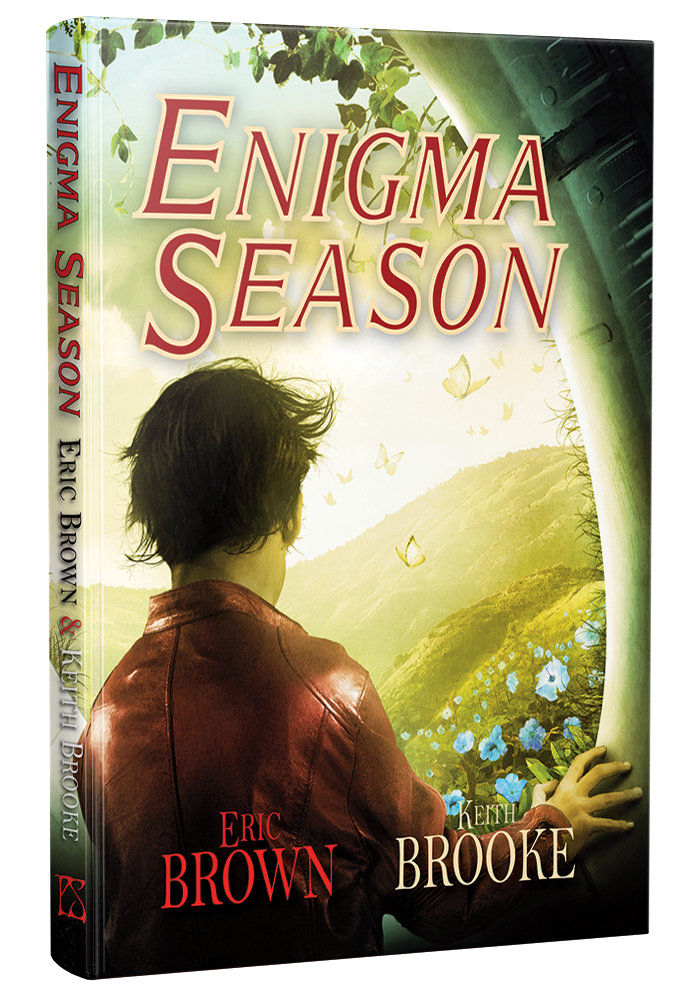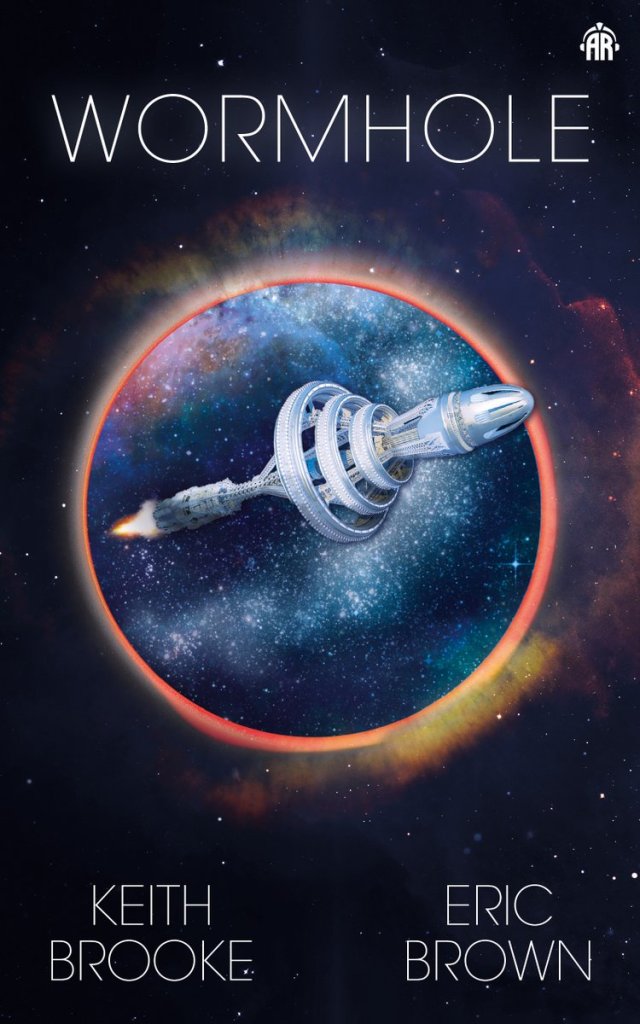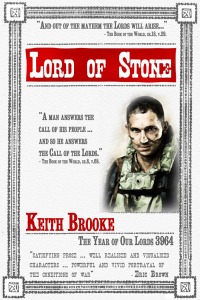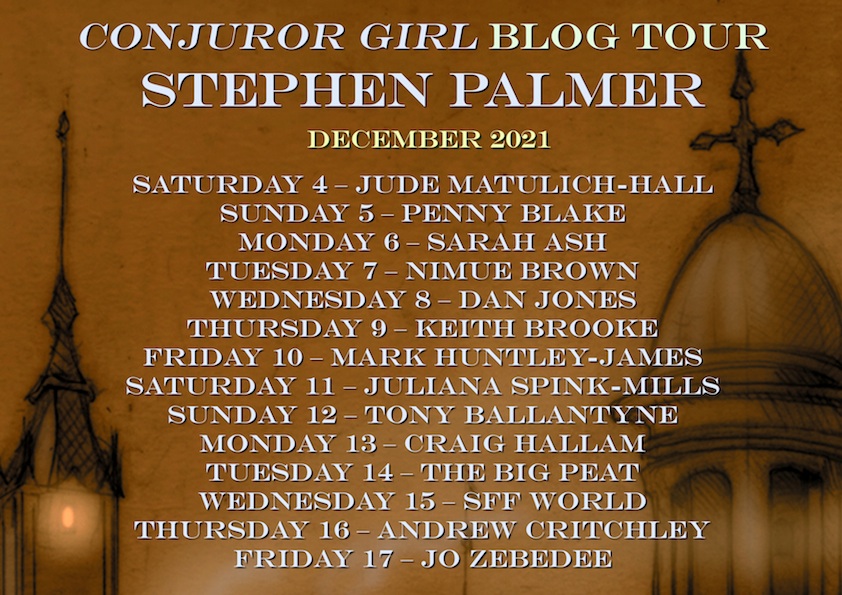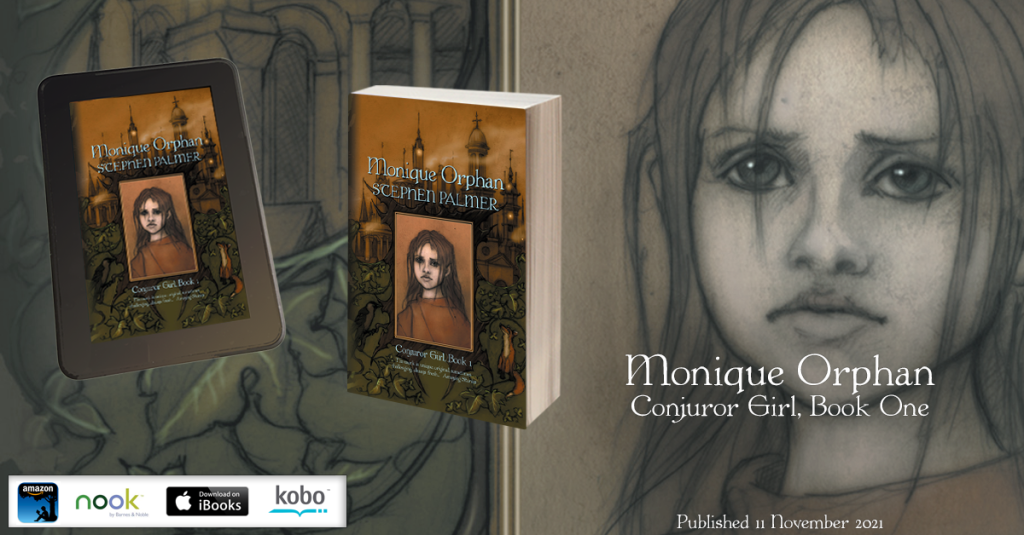To mark publication day for Wormhole, written with Eric Brown, here’s a piece I wrote for the Crime Writers’ Association:
*
There’s a long tradition of mash-ups between the genres of crime and science fiction, going right back to the early days of SF, with EE ‘Doc’ Smith’s Skylark series pitching scientist hero Richard Seaton against arch villain Blackie DeQuesne. In the 1950s, Isaac Asimov set himself the challenge of writing credible crime fiction in a future setting without falling back on future-technology “cheats” to solve the crimes, almost singlehandedly inventing the human-robot buddy-cop genre, pairing human and robot detectives together in his novels The Caves of Steel and The Naked Sun. More recently, Kristine Kathryn Rusch’s Retrieval Artist stories revolve around crime and punishment scenarios in a future where human and alien moralities – and laws – don’t always correspond.
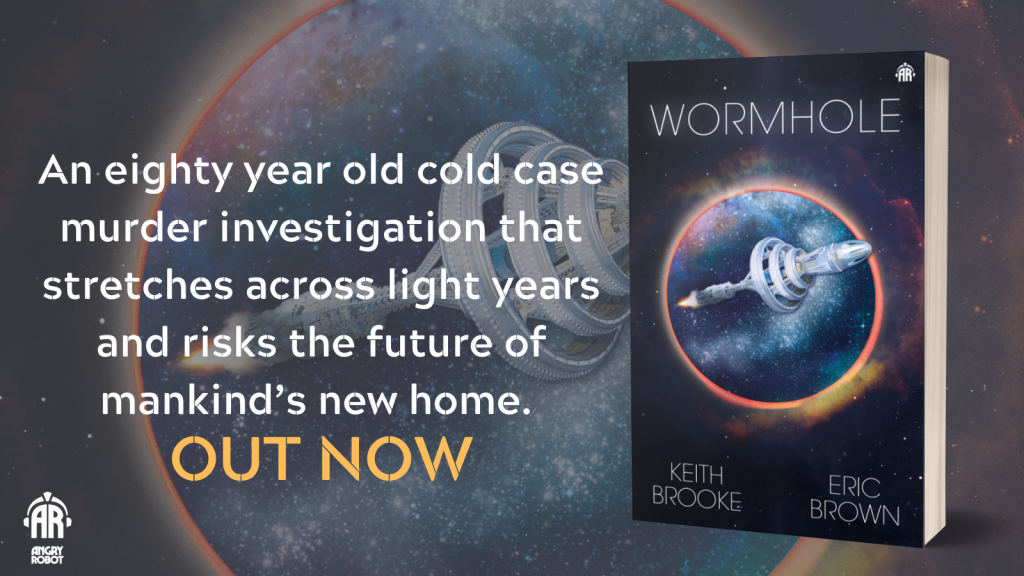
In our new novel Wormhole (by Keith Brooke and Eric Brown), our starting point was a classic crime scenario: a cold-case where the original investigation stalled over lack of evidence, possible corporate and political cover-up, and the disappearance of a prime suspect within days of the crime. What makes it a genre mash-up? Well this is the coldest of cold cases: the story is set at the end of the 22nd century, and the crime took place almost a century before the story opens – and the prime suspect is still alive, a member of the team sent out on an interplanetary mission. Having been kept in suspended animation for most of that time, the crime is still fresh in her memory, as if it had only happened a few days ago; and now, in the light of new evidence, cold-case specialist Gordon Kemp is despatched to find and return her… There ensues a mission to a distant planet, and pursuit of his suspect through exotic and very alien environments, as Kemp comes to realise that all is not as he had been told and there’s way more at stake than “merely” closing a case that has been on the books for a hundred years.
Both as authors and readers, Eric and I have always been drawn to this meeting of genres. Eric has committed SF crime in his Virex trilogy, featuring a missing persons bureau in a run-down 2040 New York where citizens escape grim reality with the use of virtual reality, while my own crime/SF short stories have frequently bridged the genre divide.
Do such genre crossovers work? They’re always going to run the risk that science-fiction fans won’t be interested in the whodunnit angle, while crime readers might find themselves dumped out of their comfort zone in very alien surroundings. The common ground is the love of a good puzzle, and the power of strong storytelling to solve it. To many authors, at least, it’s a natural marriage of genres – and we can only hope the readers agree!
Buy this ebook from: Amazon US – Amazon UK
Buy this book in print (ISBN: 9780857669964): Amazon US – Amazon UK – and other booksellers
The authors:
Keith Brooke is a habitual genre-switcher. He’s been shortlisted for major science-fiction awards, described by the Sunday Express as “the king of children’s horror”, and is a regular contributor to crime fiction anthologies and magazines.
Eric Brown has been writing and collecting books for almost thirty years, and is fascinated with British fiction of the 1950s. This interest led him to write the Langham and Dupré series of mysteries set in southern England, and one in Scotland, in the latter half of the fifties.
